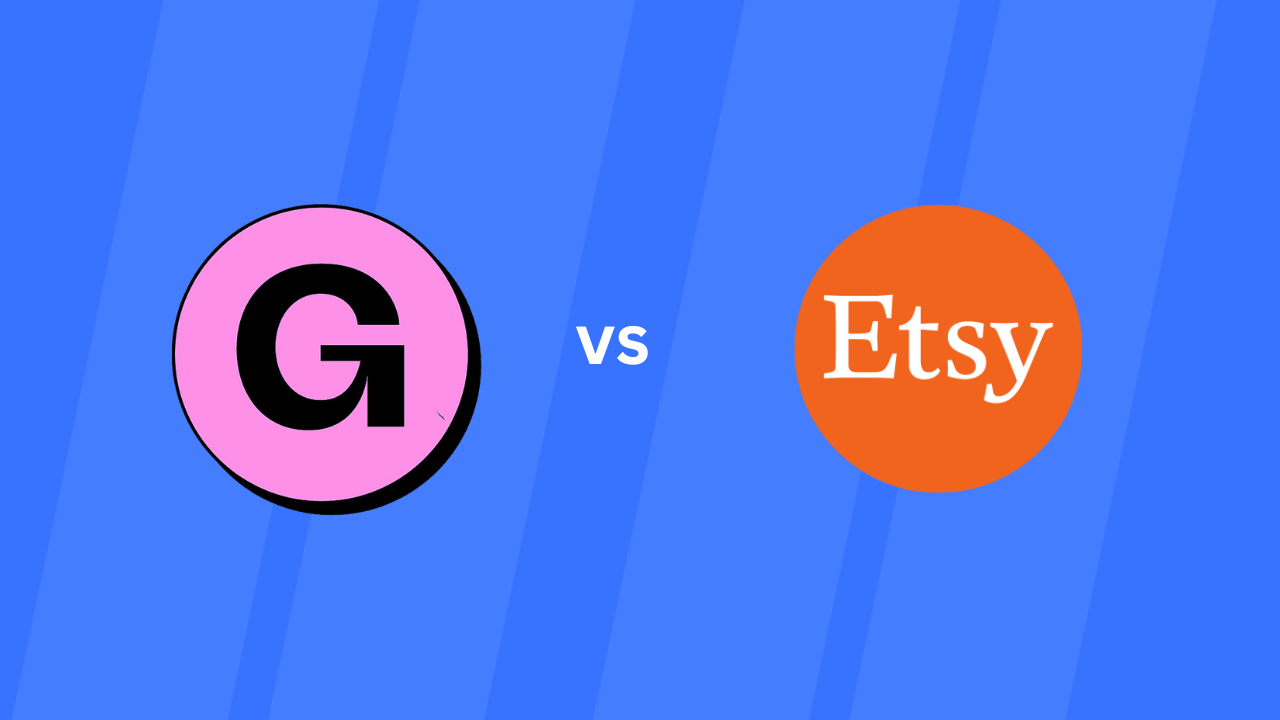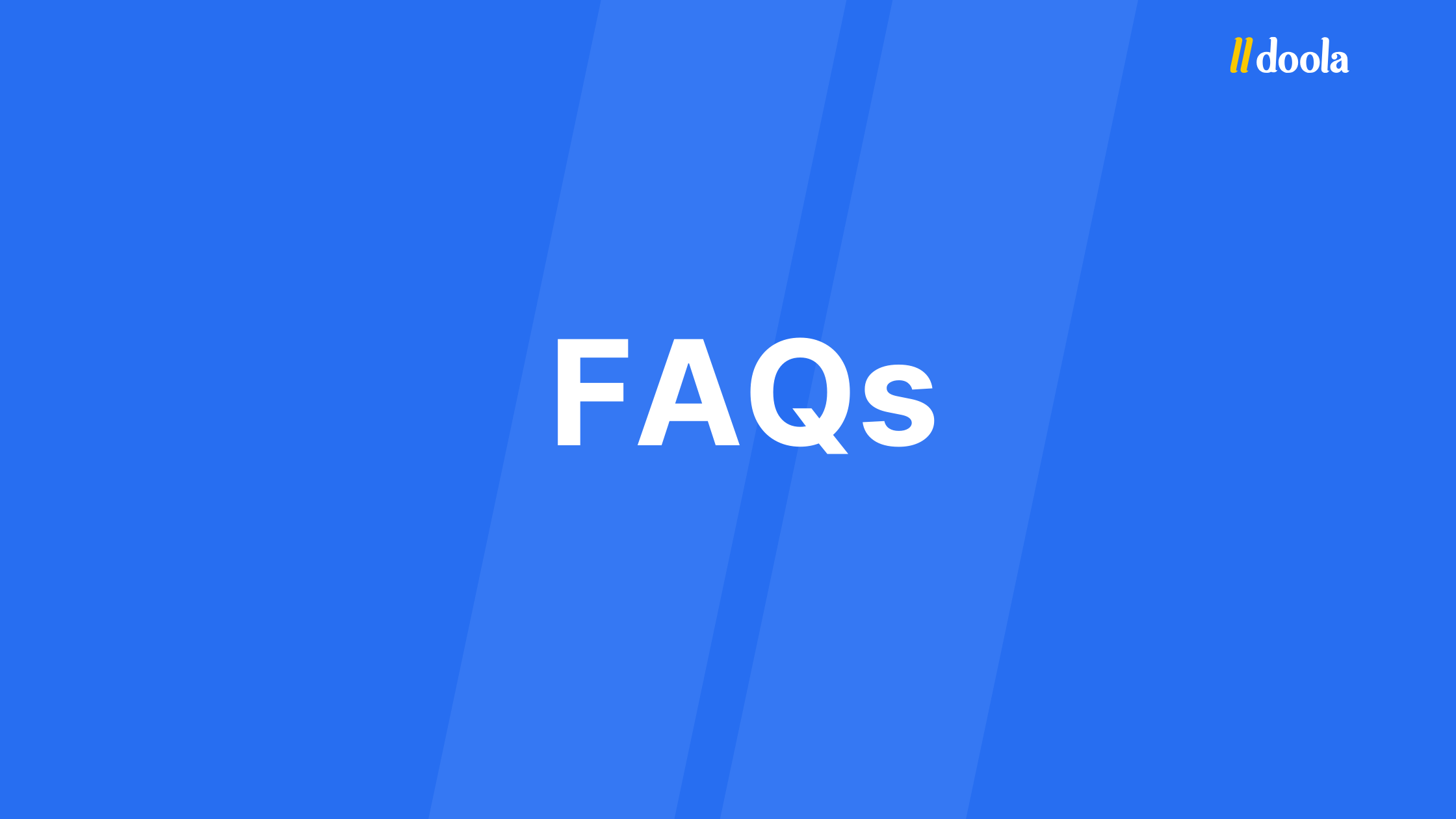Language:
Gumroad vs Etsy: Which One is Better for Creators?

Compared to eCommerce entrepreneurs, creators often have limited options for selling their digital products. This limitation usually results in entrepreneurs needing help finding the right platform for their digital products.
After thorough research, most entrepreneurs often have two options to home their content business. Etsy and Gumroad are the two most sought-after choices for content creators due to the wide range of features and benefits they provide to their customers.
This article will discuss all the information you will need to make a decision.
How to Decide Between Gumroad and Etsy

Choosing the right platform for your digital products will depend on several factors, such as pricing, features, and the advantages of both platforms. Let’s now understand how the two platforms compare.
Pricing
Gumroad
Gumroad offers a straightforward pricing structure. Their basic plan is free, perfect for beginners. If you need more advanced features, you can opt for the premium plan at $10 monthly.
The transaction fees are 8.5% plus 30¢ per sale on the free plan and 3.5% plus 30¢ on the premium plan. This fee structure is particularly advantageous for creators who don’t want to deal with the hassle of listing fees.
Etsy
On the other hand, Etsy charges a $0.20 listing fee per item, which can add up if you have many products. Additionally, Etsy takes a 5% sale price cut as a transaction fee, plus a payment processing fee of 3% plus 25¢ per sale.
While Etsy’s fees might seem higher, the platform offers a vast marketplace of potential buyers, which can offset these costs.
Features
Gumroad
Although Gumroad supports selling digital and physical products, it’s trendy for digital items. The platform offers limited but effective storefront customization options, allowing you to personalize your selling space without overwhelming complexity.
Essential marketing tools include built-in email marketing, affiliate programs, and discounts, which can help boost your sales. Weekly payouts are made directly to your bank account or PayPal, ensuring a steady cash flow.
Etsy
Etsy provides access to a large, established marketplace with millions of buyers, which is a significant advantage if you’re looking to sell physical items.
Customization options for individual shops within Etsy are limited, but the platform’s strong marketplace presence compensates for this.
Etsy’s marketing tools include Etsy Ads, social media integration, and promotional tools to enhance product visibility. Payouts can be scheduled weekly, biweekly, or monthly, offering flexibility to suit your financial planning.
Pros and Cons
Gumroad Pros:
One of Gumroad’s most significant advantages is its ease of use. The setup process is simple, and the user interface is intuitive, making it easy for creators to get started quickly.
Related read: Gumroad vs Shopify: Which One Should You Sell On?
Gumroad also allows for direct sales, meaning you directly connect with your customers without an intermediary. Another significant benefit is that there are no listing fees, which can save you money upfront.
Gumroad Cons:
However, with Gumroad, you’re responsible for generating your traffic, which can be challenging if you’re not experienced in marketing.
Additionally, while Gumroad’s customization options are effective, they are limited compared to a full-fledged website, which is a downside if you want more control over your branding.
Etsy Pros:
Etsy’s built-in audience is a massive pro, providing access to millions of
potential buyers from day one. This built-in traffic can significantly reduce your marketing efforts.
Etsy also offers SEO benefits, as its listings often rank high on search engines, increasing your visibility. The strong support community and resources for sellers can be invaluable, especially if you’re new to eCommerce.
Etsy Cons:
Conversely, Etsy’s fees can add up quickly due to listing and transaction costs. The competition on Etsy is fierce, as you’re competing with numerous other sellers in the marketplace.
Finally, the limited branding opportunities mean you need help to create a unique identity for your store, as Etsy’s overall aesthetic restricts you.
How to Pick Which Platform to Use

Choose Gumroad When:
You’re focused on selling digital products and want direct control over your customer base. The lower fees and more straightforward fee structure make Gumroad appealing if you’re mindful of costs.
Gumroad’s tools will help you build a sustainable business if you’re comfortable handling your marketing and traffic generation.
Choose Etsy If:
You want to leverage an existing customer base to sell handmade, vintage, or unique physical items. The visibility of a large marketplace like Etsy can be a game-changer.
Also read: From Hobby to Hustle: Ultimate Guide to Selling on Etsy
Etsy is the way to go if you’re okay with paying listing fees and higher transaction costs in exchange for increased exposure.
Tips for Growing Your Business on Either Platform

For Gumroad
Utilize Gumroad’s built-in email marketing tools to build and engage your audience. Social media is your friend; leverage platforms like Instagram, Twitter, and Facebook to drive traffic to your Gumroad store.
Content marketing is another powerful tool—create valuable content related to your products to attract potential customers and establish your expertise.
For Etsy
Optimize your listings with solid keywords, high-quality images, and detailed descriptions to improve search visibility.
Also read: How to Grow an Etsy Shop
Engage with the Etsy community by participating in forums and teams to gain insights and support from fellow sellers. Use Etsy Ads to boost your product visibility and drive more traffic to your store.
Based on the points discussed above, Gumroad is clearly a better choice for entrepreneurs selling digital products.
How doola Can Support Your Digital Business
With customer-centricity at the heart of our business, we ensure that every entrepreneur worldwide can access exceptional opportunities. That is why we help entrepreneurs from all over the world to set up dream US business in the state of their choice.
That’s not all; with the doola Total Compliance package, we handle our clients’ taxes and offer comprehensive bookkeeping services. Sign up on our platform and take your Gumroad or Etsy business to new heights.
FAQs

What are the main differences between Gumroad and Etsy in terms of fees?
Gumroad charges 8.5% plus 30¢ per sale on the free plan and 3.5% plus 30¢ on the premium plan ($10/month). Etsy charges a $0.20 listing fee per item, a 5% transaction fee, and a 3% plus 25¢ payment processing fee per sale.
Which platform is better for selling digital products?
Gumroad is often better for digital products due to its straightforward fee structure, lack of listing fees, and built-in tools for email marketing and direct sales.
Can I sell physical products on Gumroad and Etsy?
Yes, both platforms support selling physical products. However, Etsy is particularly popular for handmade, vintage, and unique items, offering a large marketplace with millions of buyers.
How do customization options compare between Gumroad and Etsy?
Gumroad offers limited but effective storefront customization options, while Etsy provides less control over branding but compensates with a strong marketplace presence and SEO benefits.
What are the advantages of using Etsy for my business?
Etsy offers a built-in audience, SEO benefits, and a supportive community. These features can significantly reduce your marketing efforts and help increase your visibility from day one.



